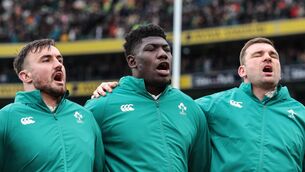A ruling to divide opinion
Declan English, who is part of the Munster and Irish schools committee, is also head of rugby at Castletroy College — the school which originally proposed this new rule.
The rule would mean that in order to be eligible to play in the competition, ‘players must be in their second year at the school to play in this competition unless permitted otherwise by the Age Grade Committee’.















